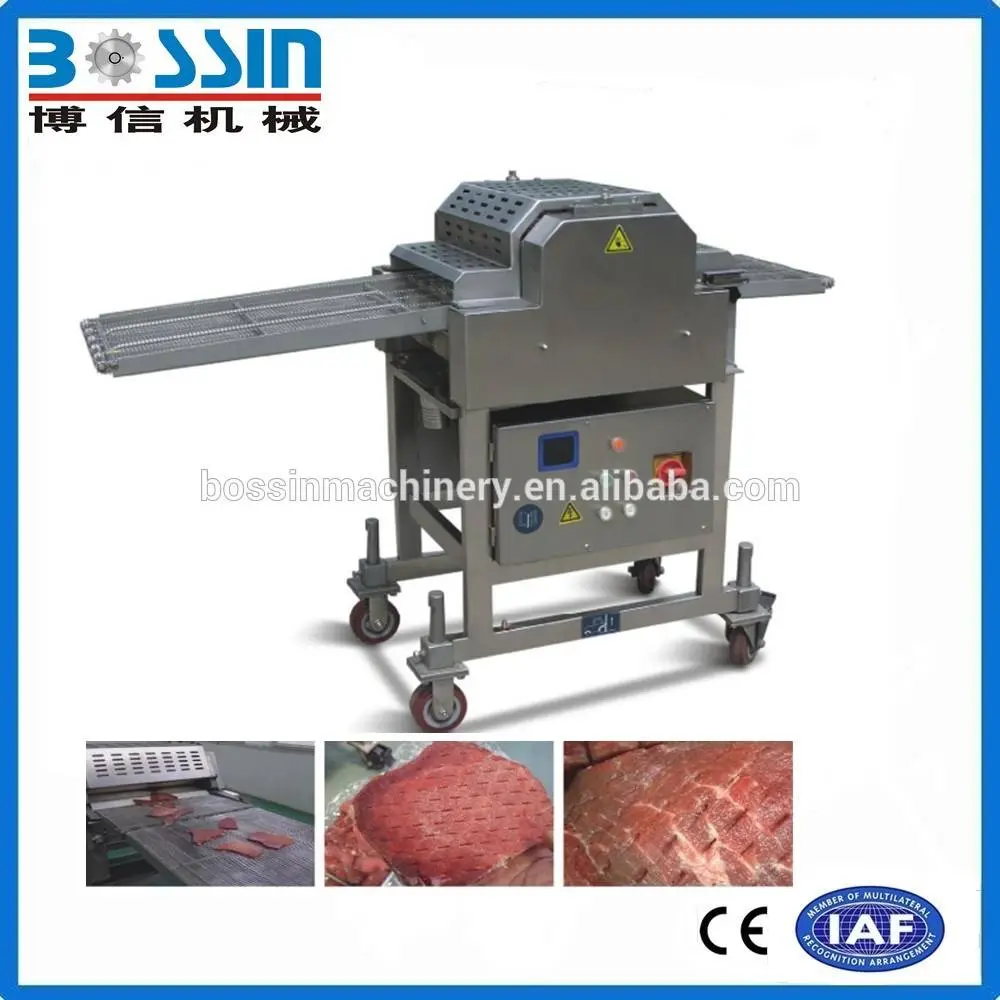
Ное . 01, 2024 19:47 Back to list
Brine Injection Equipment for Enhanced Meat Flavor and Preservation Techniques
The Importance of Brine Injection Machines in Food Processing
In the modern food processing industry, the demand for flavor enhancement and preservation techniques has led to the widespread use of brine injection machines. These specialized devices are crucial for the injection of a saline solution into various meat products, allowing for improved flavor, texture, and shelf life. Understanding the significance and functionality of brine injection machines can illuminate their role in enhancing food quality.
Brine injection is primarily used in the production of cured meats such as ham, turkey, and bacon. The process involves injecting a controlled amount of saline solution, typically comprising salt, water, and sometimes additional flavoring agents, directly into the meat tissue. This method serves multiple purposes. First and foremost, salt is a natural preservative that inhibits bacterial growth, thereby extending the meat's shelf life. The salt also enhances the flavor profile of the meat, making it more palatable for consumers.
Furthermore, brine injection machines provide the advantage of improved product consistency. Traditional curing methods, which rely on dry rubs or soaking in brine, can lead to uneven flavor distribution and variable texture. In contrast, brine injection machines ensure that the saline solution penetrates deeply and uniformly throughout the meat, resulting in a more consistent product. This consistency is crucial for food processors who aim to meet consumer expectations and maintain quality standards.
brine injection machine

Moreover, the use of brine injection machines enhances the efficiency of the food processing workflow. By automating the brining process, these machines reduce labor costs and save time. Workers can focus on other tasks while the machine performs the precise injection of brine at predetermined intervals and quantities. This automation not only speeds up production but also minimizes human error, contributing to better overall product integrity.
Another key advantage of brine injection machines is their adaptability. Many models feature programmable settings that allow food processors to adjust the brine concentration and injection pressure based on the specific type of meat or desired flavor profile. This versatility is particularly beneficial as consumer tastes evolve and the market diversifies. Producers can experiment with different brine formulations to create unique products that cater to niche markets, such as low-sodium options or gourmet flavored meats.
In conclusion, brine injection machines play an indispensable role in the food processing industry. By enhancing flavor, improving product consistency, increasing efficiency, and allowing for adaptability in formulation, these machines not only contribute to higher-quality meat products but also support the industry's need for innovation and growth. As consumer preferences continue to evolve, the importance of such technologies will only become more pronounced.
Latest news
-
Great Wall DKJC Series Auto Sausage Clipper: Efficient & Durable
NewsJul.25,2025
-
Pneumatic Clipping Machine: Efficient and Reliable Solution for Industrial Applications|Precision Cutting, Durability
NewsJul.21,2025
-
Pneumatic Clipping Machine - Shijiazhuang Bossin Machinery Equipment Co., Ltd.
NewsJul.21,2025
-
Pneumatic Clipping Machine - Shijiazhuang Bossin Machinery Equipment Co., Ltd.
NewsJul.21,2025
-
Pneumatic Clipping Machine - Shijiazhuang Bossin Machinery Equipment Co., Ltd.
NewsJul.21,2025
-
Pneumatic Clipping Machine - Shijiazhuang Bossin Machinery | Precision Cutting, High-Speed Operations
NewsJul.21,2025